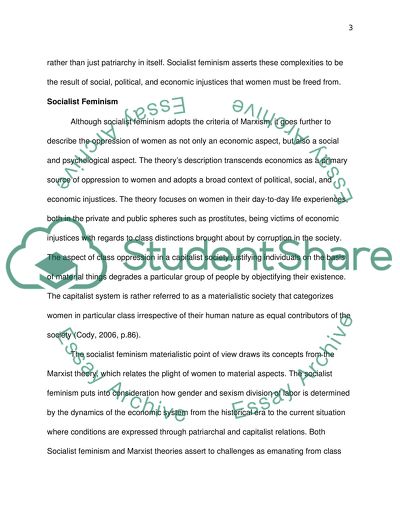Cite this document
(“Socialist feminism Essay Example | Topics and Well Written Essays - 2000 words”, n.d.)
Retrieved from https://studentshare.org/psychology/1444028-socialist-feminism
Retrieved from https://studentshare.org/psychology/1444028-socialist-feminism
(Socialist Feminism Essay Example | Topics and Well Written Essays - 2000 Words)
https://studentshare.org/psychology/1444028-socialist-feminism.
https://studentshare.org/psychology/1444028-socialist-feminism.
“Socialist Feminism Essay Example | Topics and Well Written Essays - 2000 Words”, n.d. https://studentshare.org/psychology/1444028-socialist-feminism.


